20 Nov 2024
Updated on February 24th, 2025
AI in Mobile App Development: A New Era of Innovation and Efficiency
Shaun Bell
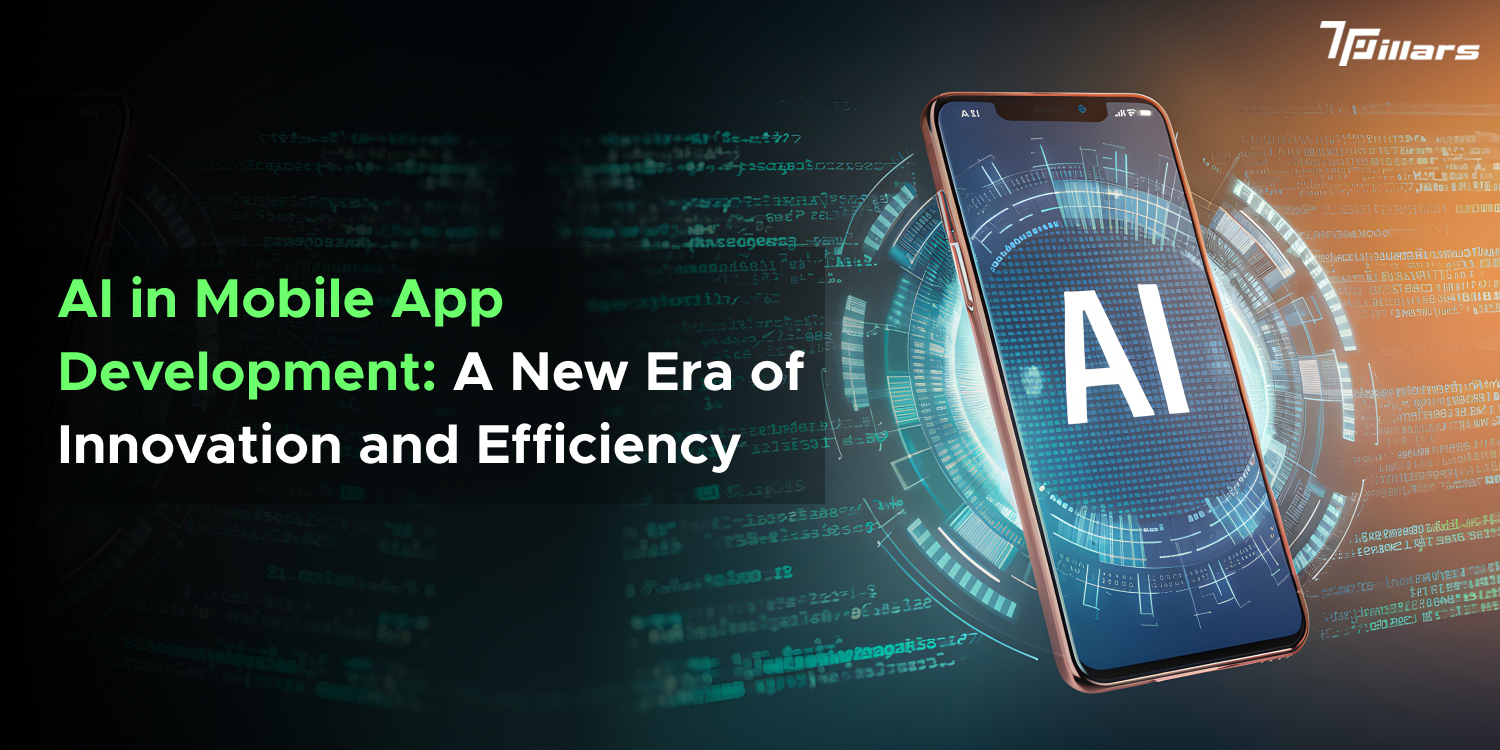
Mobile app development is at the helm of innovation in this fast-paced new-age landscape for tech. With the passing of each day, the world is getting increasingly connected and digital, with user demands skyrocketing, where an app development company faces critical pressure in building an app that is not just feature-rich but also intelligent and responsive.
Enter artificial intelligence (AI)—the transformative technology changing how mobile apps are imagined, designed, and perfected. By integrating AI into mobile app development, businesses and app development companies can unlock new possibilities, enhance user experiences, and streamline operational processes.
The mobile app capabilities unlocked by AI extend much further than simply automating or mere task management. AI personalised user experiences and optimizes application performance, making mobile apps innovative and intuitive. Content and service personalization: One of the most prominent applications of AI in mobile development is content and service personalization. Mobile apps with machine learning algorithms can study user behavior, preferences, and interactions to deliver tailored recommendations, adaptive interfaces, and dynamic content that increase engagement.
AI also aids mobile app developers in achieving functionalities that were previously unattainable through apps. Natural language processing is one of the pivotal technologies behind voice assistants, conversational interfaces in apps, and chatbots. Letting NLP be integrated into mobile applications allows the developers to give users an ‘invisible’ experience, a completely hands-free experience in searching, navigation, or other tasks. AI mobile app development company is at the forefront of implementing these technologies, helping businesses create smarter, more intuitive apps. AI will help applications learn from the inputs the user gives them, becoming innovative and more responsive.
From Code Generation to Bug Detection: Accelerating App Development with AI
Predictive analytics and app optimization are another area where AI is substantially taking place. With real-time data analysis, AI can identify patterns and trend areas, allowing developers to act proactively before some need becomes a problem for the user. For instance, algorithms designed by AI can discern potentially problematic app crashes or performance bottlenecks before they become significant issues; developers can deploy solutions before a problem affects the users. This kind of predictive ability helps create apps that are not only more reliable but also scalable since they can understand real-time changes and nuances in user needs and usage patterns. A mobile app development company can use AI technology to deliver innovative and powerful applications that users will benefit from.
AI can accelerate mobile app developers’ app development. Automated code generation, bug detection, and testing are examples of how AI tools help developers bring apps to the market faster and with higher quality. With AI, there is no limit to the possibilities for improving mobile app development. Its new avenues could be innovation, efficiency, and user-centric design. AI-powered tools enable a reliable artificial intelligence app development company to enhance their mobile application development process while building innovative mobile applications.
For example, AI algorithms can detect problems with performance app crashes or slow speeds even before they become a problem for users, and developers can fix them even before they become critical. This predictive function will enable the development of more dependable and easily reusable applications that can be modified according to the appearance and behaviors implemented by the clients. An AI mobile app development company serves as critical entities for embedding predictive functionalities into applications to improve reliability as well as compatibility for business users.
Other related advantages of AI concerning accelerating the app development process include debugging, code generation, and testing – some of the uses for developers, all of which are made more accessible and faster by AI tools. With AI constantly advancing, the world leaves much room in mobile app development to advance the usage of technology with AI – a vast open scope all at once for innovations, improvements, and customer-centric approaches. The forefront of process enhancement lies within mobile application development companies who create efficient and smarter applications through AI integration.
What Is Artificial Intelligence Technology?
Artificial Intelligence, commonly abbreviated as AI, is simply the capability of a machine to mimic human intelligence through making decisions, learning, or other intelligent activities. AI can construct mechanisms or models that make a computer work and think like a human, such as pattern recognition or language processing. In its simplistic sense, AI is all about creating processes that can learn from data, learn from the patterns introduced to them, and refine themselves. There are two subtypes of AI: narrow AI and general AI. It has been developed to solve specific problems or address particular industries.
Areas of application include voice recognition such as Siri, Alexa, self-driving vehicles, recognition of images, etc. These systems perform well in niches but could be better problem solvers. General AI, on the other hand, is a concept whereby systems are designed to perform all functions with flexible, human-like intelligence. However, true general AI, meaning complete blending of advanced AI with human-like cognition, is still in theory. Our mobile app development company can implement AI capabilities into their work to provide users with advanced application functionalities through better experiences.
Some techniques include Machine learning (ML), which involves training a system to interact with a large data set and enhance decision-making over time. The second is deep learning, a subset of ML that uses neural networks to process information such as speech and images. NLP is a part of artificial intelligence that enables machines to understand human languages. At the same time, computer vision is a field of artificial intelligence that offers these same machines the ability to see and interpret objects and scenes. An AI mobile app development company uses technology to develop advanced mobile applications that enhance usability and satisfy user requirements.
The powers of new AI technology are felt across industries, from healthcare delivered through the ability to diagnose and identify new drugs to finance driven by algorithmic trade and fraud detection systems. AI is also affecting the growth of the coming automation age. It can increase efficiency but also raises issues of employment and ethical questions. In other words, AI technology aims to mimic human intelligence, furthering the frontiers of what is considered possible today and refreshing the world for mobile app developers.
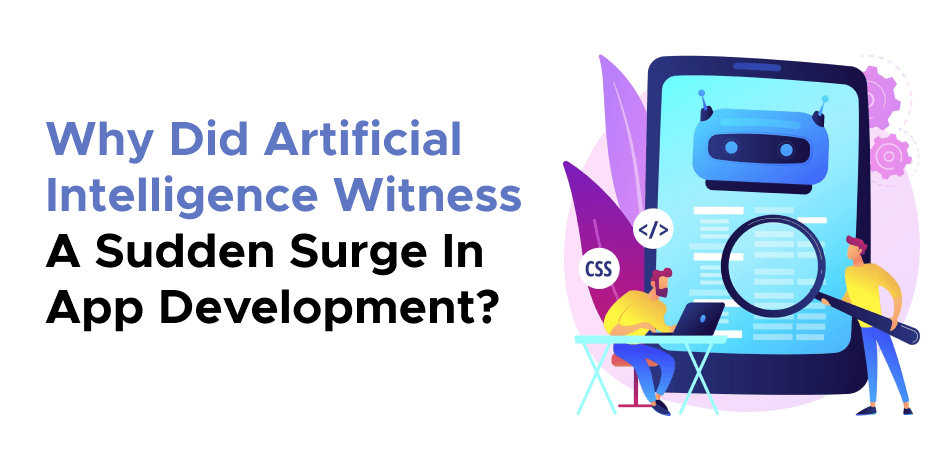
Growth Of AI In Australia
Australia has displayed rapid progress in AI advancement in recent years, with several industries perceiving the potential of AI solutions in today’s world. Global adoption of AI is witnessing transformational growth across Australian industries, including health care, finance, agriculture, and logistics, to list a few. This has created the need for AI-specific solutions. Industry demand for new AI tools has boosted the creation of many new local AI startups and well-established companies working on AI-finished products. Through its essential role in solution development mobile application development companies across Australia help organizational sectors accept AI technologies as a way to enhance operational effectiveness.
Newcomers to this ecosystem include AI-focused App development companies. These companies enable businesses to harness conversational AI technologies to create intelligent, data-driven applications that meet their needs. With AI, things as simple as sales predictions or as complex as customized browsing services are now changing how B2C affairs are done. With businesses demanding specialized services incorporating AI into their offerings, the need for an artificial intelligence app development company arises. Mobile application development companies lead integration efforts of AI to develop innovative solutions which benefit different business sectors.
Companies are practically on the cutting edge, assisting customers in designing and achieving a wide range of technologies, from voice recognition to sophisticated machine learning. Hence, artificial intelligence app development is the synergy of AI and mobile and web platforms that allow the company to achieve a competitive edge in the sphere with unique solutions.
If enough support is provided and more initiatives are researched, Australia has immense potential to be at the cutting edge of AI, especially in application development.
Key Stats Showing The Growth Of AI Technology?
AI technology is on the rise in Australia, and critical milestones include: The Australian AI market size will reach nearly $11 billion in 2023 and is expected to rise at an almost 25% CAGR over the next five years. This rapid growth is due to increased investment from both the public and private domains.
One of the Australian government’s critical priorities is artificial intelligence (AI). The government designated $124 million in funding to an AI-based program via its 2021-22 Budget. The funding is expected to promote research, skills, and business adoption of AI. The most recent on the list is the National AI Strategy of Australia, launched in 2021 with the hope of establishing Australia as the powerhouse of AI and enforcing innovation coupled with ethical AI practices for mobile app developers. A mobile app development company achieves greater success through AI technologies which improve application features alongside user interaction.
AI is also emerging as playing an ever-growing role in businesses across Australia. The Australian Computer Society polled 450 organizations based in the country and found that 50% of respondents had adopted AI technologies in their company; 80% of them are considering scaling up on AI investments over the next few years. Due to automation, predictive analytics, and machine learning, some industries have adopted AI, including healthcare, finance, manufacturing, and agriculture. The forecasting of business trends indicates that an AI mobile app development company benefits from developing cutting-edge AI-based solutions for multiple economic sectors.
Artificial intelligence is critical to Australian technological and economic development today, and investments, research activity, and diffusion across many sectors are constantly increasing.
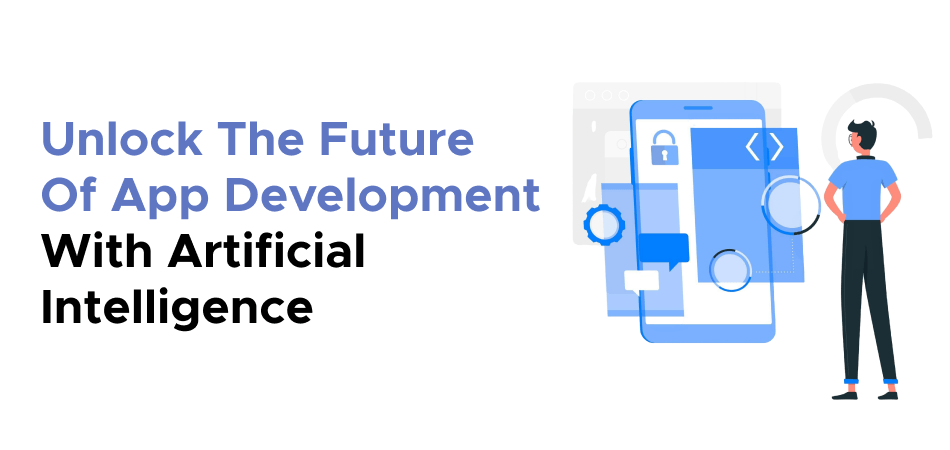
What Is The Role Of AI In Development Of Mobile Apps?
AI has advanced in many industries in recent years, including mobile application development. AI technologies influence how mobile apps are designed, developed, and upgraded, enriching users’ experiences and adding new values. Here’s how AI is changing the mobile app development process.
1. Enhancing User Experience
The first is the application of AI to enhance the user experience of mobile applications. These applications can monitor user activities, choices, and engagement to enable app creators to design relevant adaptive experiences. For example, apps like Google Assistant or Apple’s Siri use AI for intelligent recommendations or suggestions, voice recognition, and other types of predictive texts to enhance the flow of the conversation.
2. Automation and Efficiency
AI can perform repetitive functions, which is a great advantage in that it saves mobile app developers time. Elements such as auto-complete, search algorithm, and tagging content as new, urgent, or essential are just a few ways AI can improve functionality without demanding much user input. In this regard, an artificial intelligence app development company can use these features to create apps that perform with fewer errors. A mobile app development company can use AI to improve both application performance and user satisfaction levels.
3. Improved Security
Security is one of the most critical issues in mobile app development, and AI is essential to improving it. AI can monitor unusual user activity and alert the management of risks such as fraud or data theft in real-time.
Machine learning algorithms can increase the level of encryption and track application vulnerabilities to protect the application. This is an area where an artificial intelligence app development company can bring its unique value proposition.
4. Advanced Data Analytics
AI can work with big data in real time, which is helpful to application developers. By incorporating AI into their apps, developers can design apps that generate data and give back valuable information, such as predictions, recommendations, and trends. This benefits businesses in their decision-making processes and enhances the general functionality of an app, thus growing usage and loyalty among users. An AI mobile app development company acts as the implementing force which enables businesses to create smarter mobile applications through data-driven functionalities.
5. Voice and Speech Recognition
Using voice and speech recognition gradually establishes itself as a qualitative attribute of mobile applications. As mobile applications are integrated with artificial intelligence voice assistants such as Google Assistant, Alexa, and Siri, mobile apps perform several tasks from the voice. This makes it easier for users to read without holding the device and for disabled users to navigate it. An artificial intelligence app development company could implement voice recognition options in their apps as a step up in usability.
6. AI-powered chatbots in Customer support
Recently, we have observed the growing use of artificial intelligence chatbots integrated into mobile applications to ensure customer support. These chatbots employ natural language processing (NLP) and machine learning to answer queries in conversation with users. By offering customer self-service, business organizations can minimize response time, enhance customer satisfaction, and address many inquiries. An AI application development company serves as fundamental contributors to advanced solution creation and deployment for businesses that want to lead their competitive industries.
7. App Testing and Bug Fixing
AI is also being applied to enhance the quality of mobile applications through automated testing or even detecting bugs. Automating the testing process can be more effective than ordinary applications because a machine can quickly recognize problems or flaws common in bugs, unlike manual testing. AI-based solutions can include the same fixes in their algorithms to pick up potential issues during real-life application usage and report them to the user for better app performance. AI serves mobile application development companies to enhance application quality through proactive error detection and active resolution of user experience issues.
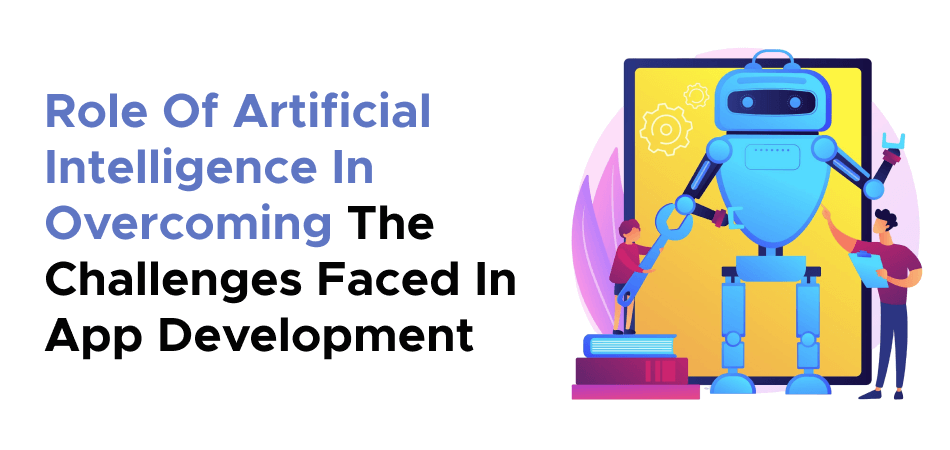
How Can AI Help You Overcome Challenges In Mobile App Development?
Mobile applications have been one of the most significant beneficiaries of Artificial Intelligence (AI), revolutionizing industries worldwide. However, using AI in mobile applications brings specific challenges that app developers must address to make the implementation successful.
1. Complexity of AI Algorithms
AI algorithms are complex; sometimes, only a specialist can run them. The challenge is ensuring these algorithms run in a mobile application and keep the application running smoothly. Since most app developers may need to learn whether a specific AI language/framework is feasible, integration will likely be challenging.
Solution: Outsourcing the implementation of the AI app to an artificial intelligence app development company is a good idea for leveraging the specialized knowledge needed to implement this tool efficiently. Such firms usually have professional staff involving data scientists and engineers in artificial intelligence to manage various issues related to AI integration and optimizing the app’s operation.
2. High Resource Consumption
The two most familiar AI models are machine learning and deep learning, which may require many computational resources. Mobile devices are competent machines, but they need help to handle these processes with or without a hit to their performance. Using AI models on mobile devices can slow down applications, drain batteries, and overwhelm the device’s memory.
Solution: One option is to delegate AI computation to the cloud and leverage cloud-based AI services instead. This way, the mobile app does not have to be burdened with the computational power needed for AI but can fully utilize it. A mobile app development company with prior experience in cloud computing can help develop cost-effective, expandable architectures in the cloud for housing AI models.
3. Data Privacy and Security Issues
Mobile applications with AI integration will demand the collection and processing of large quantities of data. Such data could contain sensitive user information, raising privacy and security issues. Hence, the strict data protection standards of GDPR in Europe and CCPA for California apply stringent demands on how data has to be treated.
Solution: In this direction, an AI application development company can ensure maximum data encryption, store the data safely, and track the data’s access history in real time. Furthermore, AI models conducted according to relevant data protection regulations can help reduce risks on the privacy side.
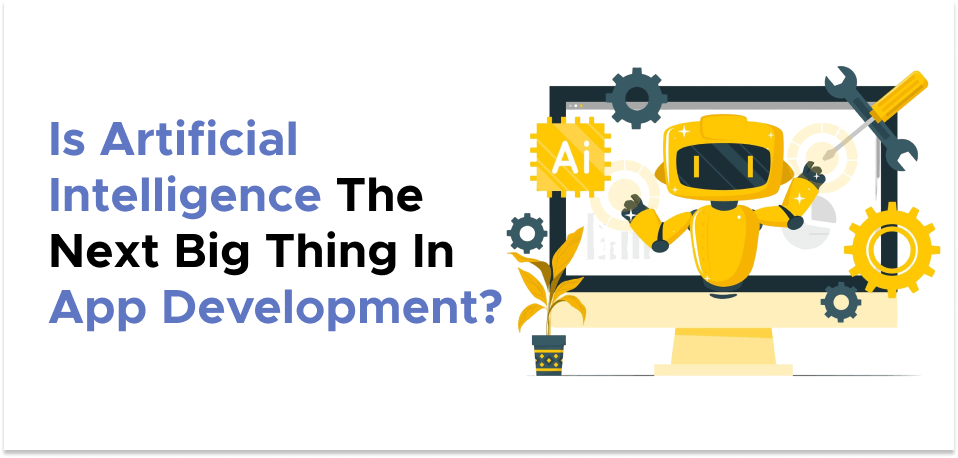
4. User Acceptance and Experience
For AI to be successfully introduced in a mobile app, it must be intuitive and provide tangible value to the user experience. Any AI-driven features that are intuitive or helpful can attract the repulsion of users at one’s disposal despite technical prowess. Poor user experiences can cut short an app’s adoption.
Solution: A competent app development company can help design AI features that align with user needs and preferences, meaning AI added would improve the user experience rather than complicate it. Thorough testing with users through rigorous feedback cycles is necessary to ensure the integration of AI meets all user expectations.
5. Scalability Issues
Scaling those AI-driven features may be the next big challenge in mobile apps as they grow and get more users. The volume of data may overwhelm the models, especially the ones built upon massive datasets; this often brings about slow response times, inaccuracies, or system crashes.
Solution: Scalability can be overcome by developing scalable cloud-based platforms, microservices architecture, and edge computing solutions. For example, an AI app development company can design AI systems to adjust dynamically to the growing demand as the users’ scales in size and volume increase. The combination of these technologies allows an AI application development company to develop flexible AI solutions for different business requirements.
6. Lack of Standardization
AI technologies still need to be developed; consequently, a general interface only applies to some platforms and devices. This results in compatibility problems, which developers dealing with AI solutions need help with to make the solution work specifically on every device.
Solution: Developing an App Many compatibility challenges can be mitigated through collaboration with an app development company experienced in cross-platform development. This ensures AI features are integrated in a manner that works well with the differences between mobile OS versions and device specifications, guaranteeing a silky-smooth user experience.
Components to Propose Via An Integrated Application
Looking at the four categories of applications above, it can be seen that if and when AI is integrated into the application, it can move the application to the next level to enhance the utility for the user. Some of the key features that would make your AI-integrated application one of a kind in the market include the following:
1. Hypotheses
For example, in preference selection, AI can use a user’s actions and preferences to provide the user with information. Looking at sequential data, AI can recommend products, services, or content based on a treatment that AI previously offered the user. For example, suppose a person employs intelligent buying/selling software; the machines may recommend their products based on their buying history.
2. NLP stands for Natural Language Processing
The application can use NLP methods to receive inputs and give responses in natural language. This would include chatbots, which can freely respond to customers’ questions and provide support; voice virtual assistants; or customer support independent agents who can respond to client’s inquiries and attend to their needs, schedule appointments, and schedule the next appointment. It will be one of those exquisite assets that will help intensify customer relations and communication in general. Mobile application development companies are essential for implementing NLP methods to create better user experiences through smarter communication tools.
3. Image and Video Recognition
Computer vision or image and video recognition can be used in photography, retail displays, or security Camera systems. This feature may accurately name images, identify with featured objects, or even watch and interpret videos in real time. An application for exercise could have data that looks at a user exercising and tells the user something about their posture.
4. Predictive Analytics
Forecasting is only one of the strategic forms of decision-making adopted by users of predictive analytics. For example, a financial or health app can help select future money expenditures or health risks based on the data and provide the users with a direction or vision to act wisely.
5. Automated Task Management
AI can facilitate routine operations and other set procedures within the application. For example, an AI-based calendar application can automatically suggest the right time for holding meetings, remind people of some issues, or even schedule and organize tasks for the day, depending on the level of importance. This makes work faster and thus improves productivity.
6. Security Features
AI can also offer better data privacy and app security. Thus, facial recognition, fingerprint recognition, or other machine learning models for anomalies will ensure proper, secure authentication and identification of suspicious actions in real-time.
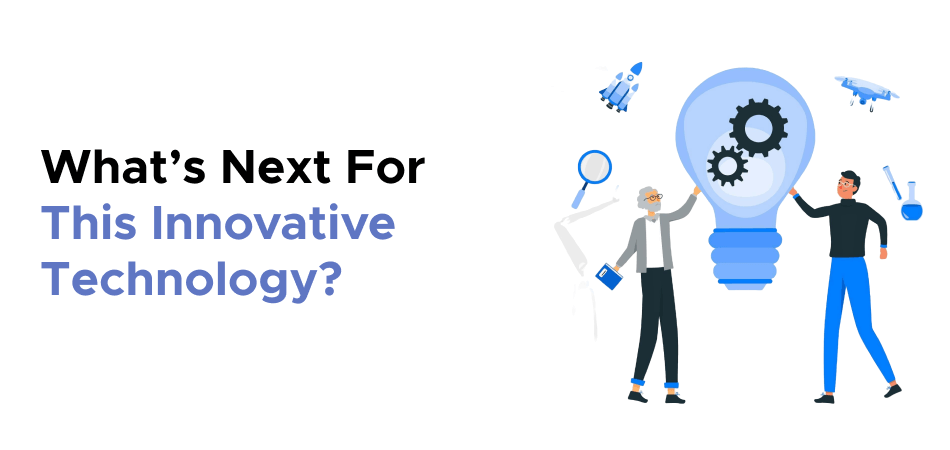
The Evolution of AI in Mobile Application Development: What’s Next?
Mobile application development is constantly growing, and Artificial Intelligence is no longer an exception. Here are some ways AI will break up an app design, development, usage, and everything else. Let’s consider a few of the most critical trends that determine further development of mobile application development.
1. AI-Powered Personalization
One of the most vital impacts that Artificial Intelligence will have on mobile app development is Personalization. AI algorithms can use user behavior, preferences, or usage data to tailor content or UX. Intelligent apps can make recommendations for notifications and content, as well as the whole interface, dependent on personal data. Solutions like those are often created with AI because they are necessary.
From a business point of view, AI can also reveal customer trends to help firms optimize their applications and user interactions. Thus, mobile application developers, including Artificial Intelligence application developers, will focus on developing mobile applications that adapt to the user.
2. More Advanced Automation in Application Development
Artificial Intelligence also makes developing applications less tiring and time-consuming. Code generation, testing, and debugging are already part of the process, and shifting to this process reduces human interference and boosts efficiency. Automating AI tools will trace bugs and fine-tune an app even in development. This allows the application developer to bring his product into the market faster yet still be confident about its quality. An AI application development company can speed up their development processes and make high-quality application deliveries through these technological capabilities.
The future of AI includes more aggressively addressed development-related tasks, including adjustments in the look and feel of applications, automatic UI/UX design, and on-the-fly modification of the application’s behavior as developers receive feedback. This, therefore, means achieving the projects of mobile application companies faster and cheaper.
3. Integration with Voice and Chatbots
Voice assistants such as Siri and Google Assistant. Since voice has become a part of people’s lives, AI-based voice conversations will become the norm in mobile applications. Organizations can add more AI-powered chatbots and virtual assistants to the customer service experience with more user engagement without human interference.
Such applications in retail, health, and financial companies utilize voice recognition to make the entire experience gesture-free. While AI app development companies already consider voice-based interfaces the future edge, they will boom exponentially.
4. AI-Based Security Features
With the increasing mobile application usage, security threats are also increasing. Since AI will take over and enhance app security, the detection of patterns in users and actual threats is being catered to. Biometric authentication, anomaly detection, and fraud prevention are among the AI-powered security features found in mobile apps. With threats evolving faster, AI will revolutionize mobile application defense by allowing it to respond quickly to new threats.
Conclusion
Users are the life of apps, and UX determines the success of an app incorporating AI, which is changing how we design it. AI allows developers to obtain deep information about the user, thus providing them with the proper services and options that they need and are interested in, from suggesting content based on viewers’ preferences to even changing how the app functions according to its user, AI presents a new avenue for increasing app interaction.
For example, the algorithm can learn how people use the app, from the first click, swipe, or any other gesture to the final scrolling. Most significantly, AI knows what utilization patterns the users exhibit and subsequently discovers more features, offers content that aligns with the user’s preferences, or even rearranges the format to enhance ease of use. This is another approach used to retain the users, making the users find more value in the application with the subsequent session.
This is a very effective model for app developers, especially when dealing with a good app development company, 7 Pillars. Their specialty in using AI to create apps enables the development of compelling, smooth, and problem-solving user experiences. Through the application of artificial intelligence in terms of the proactivity of meeting the needs of the users and the dynamic enhancement of the app’s performance, companies experience improved user satisfaction.
However, and perhaps more significantly, AI can also provide information and technical assistance to clients should they experience problems. Rather than reacting to users’ complaints and concerns, this proactive approach improves user satisfaction, confidence, and loyalty.
By partnering with an elite ai application development company, such as 7 Pillars for modern-day app development, competition is stiff. Their competence in leveraging AI can enable the creation of applications that meet a company’s basic requirements, have appealing user interfaces, are interactive, and prove to be increasingly captivating to consumers in a highly competitive market. Connect with our team at 7 Pillars, a dedicated app development company today and begin your journey towards building your dream app.








